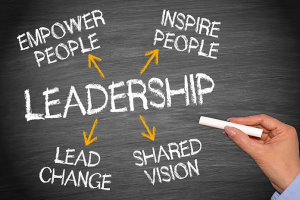People are either leaders or followers, but many followers aspire to become leaders without knowing where to start. Developing effective leadership skills is a journey that requires simplicity, ethics, appreciation, open-mindedness, approachability, and goal-setting. This article explores key principles and strategies to help individuals transition from being followers to becoming confident and respected leaders.

Encouraging Simplicity: Focusing on Priorities A good leader prioritizes important tasks and avoids getting caught up in trivial matters. By simplifying work processes, leaders can set clearer priorities and allocate time for both personal and team reflection.
Ethics and Trust: Upholding Moral Principles Maintaining ethical standards is crucial for successful leadership. Building trust and loyalty among customers and employees is achieved by adhering to strong moral principles. Discipline is essential when employees deviate from the established principles.
Expressing Appreciation: Boosting Morale and Productivity Acknowledging the efforts of employees has a profound impact on morale and productivity. Demonstrating appreciation for their work fosters a positive work environment and encourages continued dedication.
Embracing Open-mindedness: Listening and Learning from Others Leaders should avoid a know-it-all attitude and be receptive to ideas and constructive criticism from others. Embracing diverse perspectives and implementing valuable suggestions can strengthen leadership and improve outcomes.
Approachability and Support: Nurturing Successful Team Members Being approachable and supportive creates a positive work environment. Employees should feel comfortable seeking guidance and assistance from their leader, knowing that their success is the leader’s priority.
Setting Ethical Standards: Competing with Integrity Maintaining personal morals is essential, even in a competitive business environment. Leaders should find alternative ways to compete rather than compromising their integrity. Developing innovative approaches helps stay relevant without sacrificing ethical values.
Goal-Setting: Guiding the Team Setting goals for the team provides a sense of purpose and direction. Regularly revisiting and holding the team accountable to these goals ensures progress and success.
Embracing Diversity: Harnessing Unique Perspectives Building a diverse team fosters innovation and prevents the limitations of a homogenous group. Hiring individuals with different backgrounds and perspectives promotes creativity and prevents weaknesses within the team.
Active Listening: Valuing Employee Input Being a skilled listener is a vital leadership quality. Leaders should actively listen to their employees, understanding both positive and negative feedback. These conversations can offer valuable insights about products, buyers, and the overall team dynamics.
Balancing Data and Motivation: Inspiring Team Success While data-driven decision-making is essential, leaders must not lose sight of motivating their team. Balancing spreadsheets and statistics with effective motivation techniques creates an environment of enthusiasm and excellence.
Effective Communication: Providing Clarity and Accountability Clear communication is key to successful leadership. Leaders should ensure their team has all the necessary information and understand their roles and responsibilities. Regular check-ins keep projects on track and enable efficient collaboration.
Decisiveness: Making Confident Choices Leaders should develop the ability to make informed decisions efficiently. Taking calculated risks, trusting intuition, and avoiding second-guessing are crucial aspects of effective decision-making.
Collaboration: Building a Strong Team Leadership is not a solitary endeavor. Collaboration and involving multiple perspectives in decision-making enhance the strength of the team. By promoting a collaborative environment, leaders empower their team members and maximize their collective potential.
Embracing Challenges: Igniting Passion and Growth Great leaders embrace discomfort and take risks. Stepping out of the comfort zone fuels passion, promotes optimism, and prevents stagnation. Well-calculated risk-taking is essential for personal growth and leadership development.
Organizational Skills: Setting High Standards Organized and efficient leaders set high standards for themselves and their team. Clear communication of specific tasks and expectations fosters productivity and accountability.
Learning from Role Models: Gaining Insights from Success Stories Biographies of admired individuals, such as Abraham Lincoln, offer valuable lessons in leadership. Exploring the experiences and strategies of successful leaders provides inspiration and guidance.
Balancing Criticism and Praise: Promoting Positive Communication A great leader avoids excessive criticism and offers deserved praise. Maintaining a ratio of at least five positives for every negative comment fosters good communication and boosts employee self-esteem.
With the knowledge of what it takes to be a leader, you can now start applying these skills. Confidence is key, and by using these tools, you can earn the respect of others. Remember that successful leadership involves seeking help from others.














Add Comment